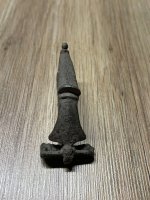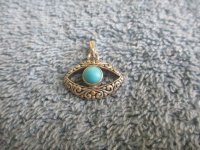Although I have done considerable MDing, most of it has been for military relics.When coin hunting, I don't have near the luck as with relics. I find all kinds of clad, but not the old ones. I have only found three, a 1835 dime, a 1862 silver three cent piece (while looking for military relics) and a pristine 1918 dime. Not counting Indian Heads. So either I'm not where the coins are or I'm a sloppy searcher. My two detectors in air (lying on the kitchen table with coil away from metal) will signal a dime or quarter at 6"-7". A lot of you are apparently successful in finding the old ones. Do you take small pieces of ground like three feet by three feet and cover it thoroughly or like me just walk making sweeps sometimes overlapping and sometimes not? Also how many of you use headphones?
Amazon Forum Fav 👍
Upvote
0





